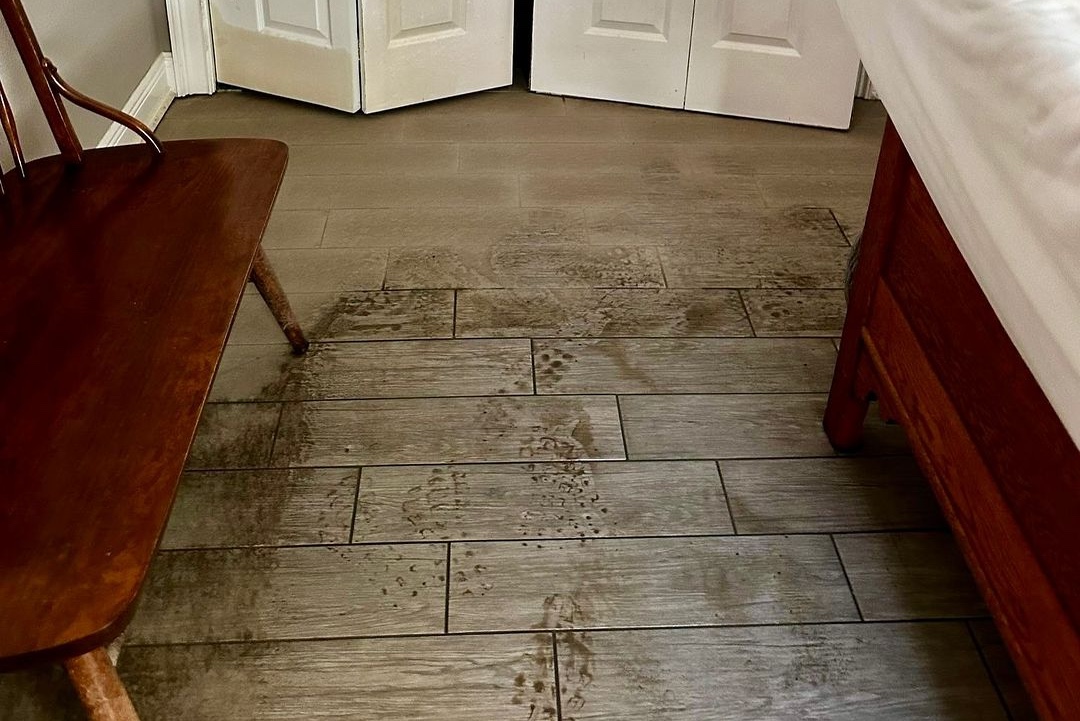Category 3 ‘black water,’ refers to highly contaminated water that is typically associated with flooding from severe weather events like storms or hurricanes.
In the context of water damage and flooding, water is categorized based on its contamination level:
- Category 1 (previously also ‘Clean Water’): Category 1, Clean Water, is water from a clean source, such as a broken water supply line or a sink overflow. It is not harmful in itself as water (but can cause mold growth or other problems) and it can be safely handled or dealt with by homeowners.
- Category 2 (previously also ‘Gray Water’): Category 2, Gray Water, contains a significant level of contamination and could cause illness or discomfort if ingested. It typically comes from sources like washing machines, dishwashers, or toilet overflows (without feces).
- Category 3 (previously also ‘Black Water’): Category 3, Black Water, is the most contaminated type of water. It can contain harmful pathogens, bacteria, and chemicals, making it dangerous to human health. Category 3 water often comes from sources such as sewage backups, floodwaters from rivers or streams, or water that has been in contact with hazardous materials. In the context of a storm or hurricane, floodwaters can become classified as black water due to the potential for containing sewage, chemicals, and other toxic substances.
(The additional descriptive terms, “Clean Water,” “Gray Water,” and “Black Water” were in use for some time but are no longer taught. Nontechnical homeowners/residents should merely be aware that storm water and other floods or leaks pose water-related issues as well as contamination issues, which is what these Categories serve to indicate.)
- “Category 3 – Category 3 water is grossly contaminated and can contain pathogenic, toxigenic or other harmful agents. Examples of Category 3 water can include, but are not limited to: sewage…and other contaminated water entering or affecting the indoor environment, such as wind-driven rain from hurricanes, tropical storms, or other weather-related events. Such water sources may carry silt, organic matter, pesticides, heavy metals, regulated materials, or toxic organic substances.” — IICRC Reference Guide for Professional Water Damage Restoration (ICRC S500), emphasis added here in bold.
Immediate attention, specialized cleanup
The presence of Category 3 black water requires immediate attention and specialized cleanup to prevent health risks or property damage. Without PPE and proper training, you should avoid direct contact with this type of water and should call in professional remediation services if at all possible.
This categorization of water types is primarily defined by the Institute of Inspection, Cleaning and Restoration Certification (IICRC), a nonprofit organization that sets standards for the cleaning, restoration, and inspection industries. Their guidelines are widely adopted in the field of water damage restoration and are referenced by industry experts.
The Environmental Protection Agency (EPA) also provides guidelines and regulations concerning water quality and safety, but EPA doesn’t specifically categorize water types in the same way. Here’s what the EPA does write on storm and flood waters:
Avoid direct contact with black water
“Avoid contact with flood water due to potentially elevated levels of contamination associated with raw sewage and other hazardous or toxic substances that may be in the flood water. EPA and the Department of Health and Human Services urge everyone in contact with flood waters to follow these guidelines:
- “Avoid or limit direct contact with contaminated flood water.
- “Wash your hands frequently with soap, especially before drinking and eating.
- “Do not allow children to play in flood water, or play with toys contaminated with flood water.
- “Report cuts or open wounds, and report all symptoms of illness. Keep vaccinations current.”
— U.S. Environmental Protection Agency, “Flooding,” Last updated [by EPA] on October 1, 2024
FEMA also states “Floodwater could contain a variety of hazards that pose a health and safety risk, including sharp objects, sewage, bacteria, chemicals, diseased insects, and animals.” — FEMA.GOV, “Hurricane │ Stay Away from Floodwater”
Mold Solutions can help if you’ve been affected by Helene
In short, Black Water has to be cleaned up immediately and fully (when in a residence or office) by professionals with proper PPE. If you think your home is affected by black water or water damage, contact Mold Solutions.







